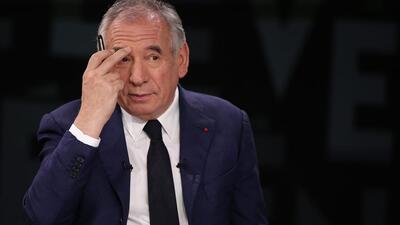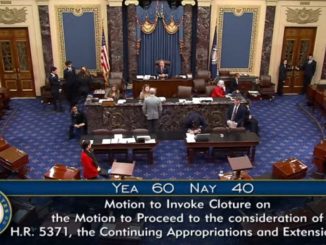
French Premier Bayrou Loses Confidence Vote in Parliament
Published September 8, 2025
France has once again plunged into a deepening political and economic maelstrom. Prime Minister François Bayrou, facing the fourth government collapse in just over a year, suffered a decisive defeat in a confidence vote, with only 194 deputies supporting him and 364 opposing — a clear signal of parliamentary gridlock. Bayrou is expected to formally resign as early as tomorrow, August 9, with President Macron poised to accept his departure as the leadership vacuum widens.
At the heart of this downfall was Bayrou’s ambitious—but deeply unpopular—fiscal plan aimed at reducing the 2026 deficit from 5.4% to 4.6% of GDP. The proposal included hefty spending cuts totaling €44 billion, tax hikes, and the controversial elimination of two public holidays. However, lacking a governing majority, Bayrou was unable to secure the necessary support from either the Left or the National Rally, who decisively rejected his proposals.
Markets reacted swiftly. French bonds came under pressure as investor anxiety rose: the French 10-year bond yield climbed to nearly 3.6%, and the yield spread versus German Bunds widened toward 80 basis points. Analysts warn that this volatility could persist, particularly if Bayrou’s departure triggers fresh elections and further instability.
Looking ahead, President Macron faces limited and complex choices. He may appoint yet another prime minister—potentially Finance Minister Lombard—in hopes of forging a centrist coalition, though critics argue that without meaningful compromise, this may prove no more than a temporary fix. Alternatively, Macron could dissolve the National Assembly and call a snap legislative election, though he reportedly views this as undesirable given the risk of continued fragmentation in parliament.
Ultimately, Bayrou’s collapse underscores the profound structural challenges facing France: persistent fiscal imbalance, a deeply fractured National Assembly, and the growing politicization of economic reform. Absent a credible coalition or electoral breakthrough, the country is likely to remain mired in instability, with mounting pressure on financial markets and rating agencies to reflect the elevated risk of governance failure.
👥 Public/Political Reactions
Political Leadership Reactions
-
Marine Le Pen (National Rally)
Called Bayrou’s ousting “the end of the agony of a phantom government,” and demanded snap parliamentary elections. -
Jean-Luc Mélenchon (La France Insoumise)
Framed the moment as one of popular relief, urging President Macron to step forward and face the people. -
Boris Vallaud (Socialist Party)
Held Macron accountable, labeling him a “defeated president,” and dismissing the no-confidence vote as merely a cop-out by Bayrou.
Grassroots & Public Mobilization
-
“Bloquons Tout” (“Let’s Block Everything”) Movement
Planned a nationwide disruption for September 10, opposing the austerity measures in Bayrou’s proposed 2026 budget, including cuts affecting public holidays and healthcare. The movement is largely youth-driven and apolitical in structure. -
Business & Public Sentiment
Political instability has weighed heavily on public morale—business owners report a 20% drop in bookings, and unemployment is climbing. Growth forecasts are slashed, and there’s widespread pessimism about France’s trajectory.
Political Analysts & Media Commentary
-
Financial Markets & Expert Assessment
While bond markets showed signs of stress, stock indices remained comparatively stable—indicating tempered investor anxiety. Still, political paralysis is widely seen as a threat to France’s credit reputation. -
Broader Implications & Forecast
Analysts warn of potential downgrade from agencies like Fitch, with growing debt and a deadlocked parliament likened to the institutional crisis that preceded the Fifth Republic’s establishment.
Public Mood & Social Dynamics
-
Public support for Bayrou was historically low—his approval rating dropped to just 17%, making him the most unpopular prime minister in the Fifth Republic’s history.
-
Collectively, citizens and analysts view the situation with frustration—seeing it as symptomatic of political dysfunction, fiscal instability, and leadership fatigue within the government.
⚠️ Resulting Effects
-
Government Instability – France faces its fourth government collapse in just over a year, deepening concerns about long-term governability.
-
Leadership Vacuum – Bayrou’s resignation leaves President Macron with limited options for appointing a successor, risking further stalemate.
-
Economic Fallout – French bonds sold off, with 10-year yields nearing 3.6% and spreads against German Bunds widening, signaling shaken investor confidence.
-
Budget Uncertainty – The failure of Bayrou’s deficit-cutting plan means no clear path forward for fiscal reforms, raising concerns about France’s ability to meet EU deficit rules.
-
Public Unrest Escalation – Grassroots movements and unions plan strikes and protests against austerity, likely amplifying social tensions.
-
Pressure on Macron – Opposition parties are uniting in their calls for either snap elections or Macron’s resignation, further isolating him politically.
-
International Perception – France’s credibility as the EU’s second-largest economy weakens, with parallels drawn to Italy’s revolving-door governments.
-
Credit Risk – Analysts warn of a possible credit downgrade if France cannot demonstrate fiscal stability.
-
Comparisons to 1958 Crisis – Commentators highlight echoes of the institutional deadlock that led to the birth of the Fifth Republic, raising speculation about deep political restructuring.
🔮 Future Outlook
-
Macron’s Next Move – President Macron must either appoint a new prime minister (possibly Finance Minister Lombard or another centrist figure) or consider dissolving parliament and calling snap elections, both risky paths.
-
Snap Elections Likely – With pressure mounting from Marine Le Pen, Jean-Luc Mélenchon, and public opinion polls (over 60% of voters demand elections), Macron may be forced to allow a vote despite the danger of further fragmentation.
-
Continued Political Deadlock – Even if elections are held, France’s fractured parliament makes it unlikely any party will secure a stable majority, prolonging governance paralysis.
-
Economic Strain – Markets will likely remain volatile; investors are bracing for higher borrowing costs, and credit agencies could issue downgrade warnings if fiscal reforms stall.
-
Social Unrest – The planned September 10 general strike could be the beginning of broader nationwide protests, especially if austerity measures resurface under a new government.
-
Macron’s Legacy at Risk – As his presidency weakens, Macron risks being remembered not as a reformer but as a leader presiding over institutional collapse.
-
European Implications – France’s instability undermines its role as the EU’s second-largest economy and weakens its ability to lead on issues like budget discipline, migration, and defense.
-
Potential Institutional Change – Analysts draw parallels to 1958, when crisis reshaped French governance, hinting that systemic political reform (even constitutional changes) may be debated if paralysis persists.
🧩 Bottom Line:
The fall of François Bayrou’s government marks yet another chapter in France’s cycle of instability, exposing the fragility of a political system caught between fractured parties, public anger, and harsh fiscal realities. With investors losing confidence, unions preparing mass strikes, and the public overwhelmingly demanding new elections, President Macron stands increasingly isolated, struggling to hold together both his government and his legacy. The failure of Bayrou’s austerity-driven reforms highlights a deeper problem: France is attempting to reconcile ballooning deficits with an electorate unwilling to endure more sacrifice. Unless a credible governing coalition emerges—or fundamental institutional reforms are considered—France risks drifting into a prolonged period of economic strain, social unrest, and weakened global influence. What happens in the coming weeks will not only shape Macron’s presidency but could also redefine the Fifth Republic itself.
SOURCES: ZEROHEDGE – French Govt Collapses As PM Loses Confidence Vote, To Resign Tomorrow
THE TELEGRAPH – French Government latest: Prime Minister Bayrou loses confidence vote
BLOOMBERG – French Premier Bayrou to Resign After Losing Confidence Vote





Be the first to comment